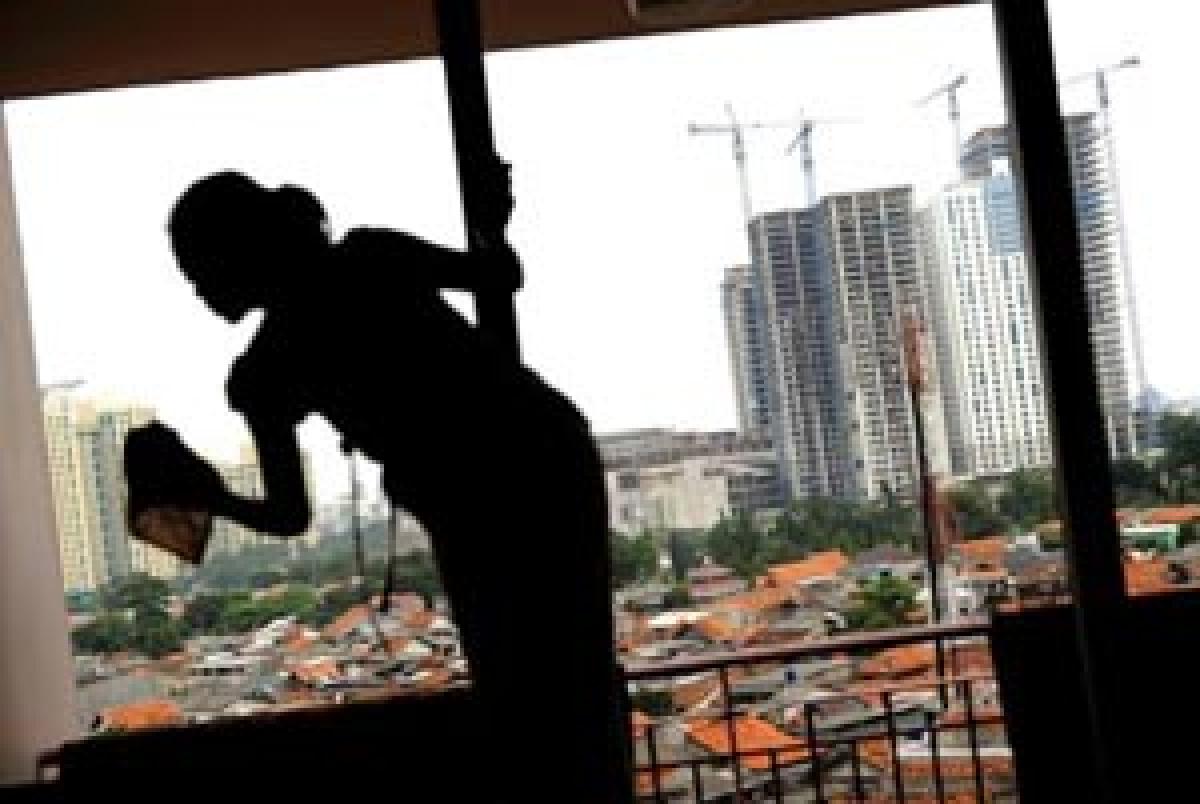Live
- Udupi Cooperative Bank Accused of Loan Fraud
- No more smoking in government office premises
- Google Cloud unveils new initiatives to empower AI startups in India
- Collector Warns of Strict Action if Irregularities Occur in Weighing Process
- WPL 2025: Mumbai Indians release Issy Wong, Humairaa Kaazi, Fatima Jaffer and Priyanka Bala
- People will not forgive Congress for repeatedly insulting Constitution: Kiren Rijiju
- Aid group resumes activities at famine-hit camp in Sudan
- Kishan Reddy Vows to End BRS and Congress Influence in Telangana, Criticizes CM's Governance
- Punjab bypolls: Bittu twisting words for political gains, says Congress nominee
- Punjab CM to administer oath to over 10,000 sarpanches on Friday
Just In

Placing their hands on the shoulders of the person in front, dozens of teenage girls excitedly form a human train and chug around the sparsely furnished community hall in Chennai.
Chennai : Placing their hands on the shoulders of the person in front, dozens of teenage girls excitedly form a human train and chug around the sparsely furnished community hall in Chennai. Aged between 12 and 17, the girls - who are drawn from urban slums across the country chatter, laugh and sing songs as the gathering gets underway.
But within minutes a more sombre tone prevails as they settle cross-legged on the floor and begin to narrate the daily threats they face living in India's slums. "To enter my home, I have to negotiate drunk men, lewd language, garbage and filth," said 17-year-old Sayali Mandve, the daughter of a domestic worker, from the Jogeshwari slum area in Mumbai, India's financial capital.
"My mother leaves very early for work and comes back only in the evening. I have to negotiate school and everything else alone and it is difficult in my neighbourhood." Mandve is one of almost 50 girls - daughters of domestic workers or former child maids themselves - who gathered in Chennai this week as part of a nationwide campaign to help curb the abuse of children from low income urban homes.
Such children often live in densely packed slum areas, say activists, where they are at risk of physical and sexual violence, or exposure to alcohol, drugs and other crimes. The meagre income of their families, who are already teetering on the brink, often means a major expense such as medical fees for illness or a sudden debt can compel parents to make their children quit school and take up a job.
Vulnerable to child labour
Led by the National Domestic Workers Movement, the campaign aims to help children of informal sector workers such as maids, nannies and drivers recognise threats and equip them to better protect themselves. "The initiative is part of a child rights movement taking shape across the country," said Andrew Sesuraj of the Tamil Nadu Child Rights Observatory, a Chennai-based charity. "More than 5,000 children in slums have already been organised into a community and more are joining everyday."
Census data shows there were 4.35 million labourers aged between five and 14 in 2011 against 12.66 million a decade earlier - although activists say the figures are under-reported. Most work in farming, toiling in cotton, sugarcane and rice paddy fields, or in the manufacturing sector, making products such as matchsticks, embroidering clothes or weaving carpets. Many children also work in the services sector in restaurants and hotels or middle-class homes where they cook, clean and even take care of other children.
"Children of domestic workers often drop out of school and end up doing odd jobs themselves," said Christin Mary, coordinator of the National Domestic Workers Movement, which has over three million members. "We are seeing a large number of boys working as domestic help now. They are walking the dogs, cleaning the cars and are out of schools just like the girls."
Organisers say the campaign provides a platform for children to confront sensitive issues ranging from child labour to sexual abuse and will empower them with information on the laws dedicated for their care and protection. Mandve said she joined the campaign because she wanted to know her rights so she could protect herself and other children from abuse. "Where I live, we need a space to be children. We don't get that easily and being part of this campaign makes me realise how important it is," she said.

© 2024 Hyderabad Media House Limited/The Hans India. All rights reserved. Powered by hocalwire.com







